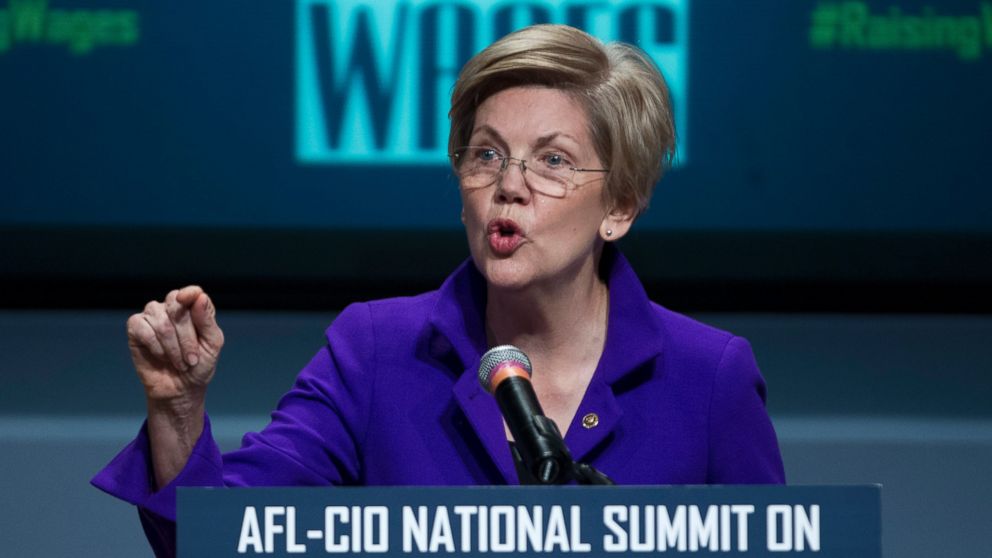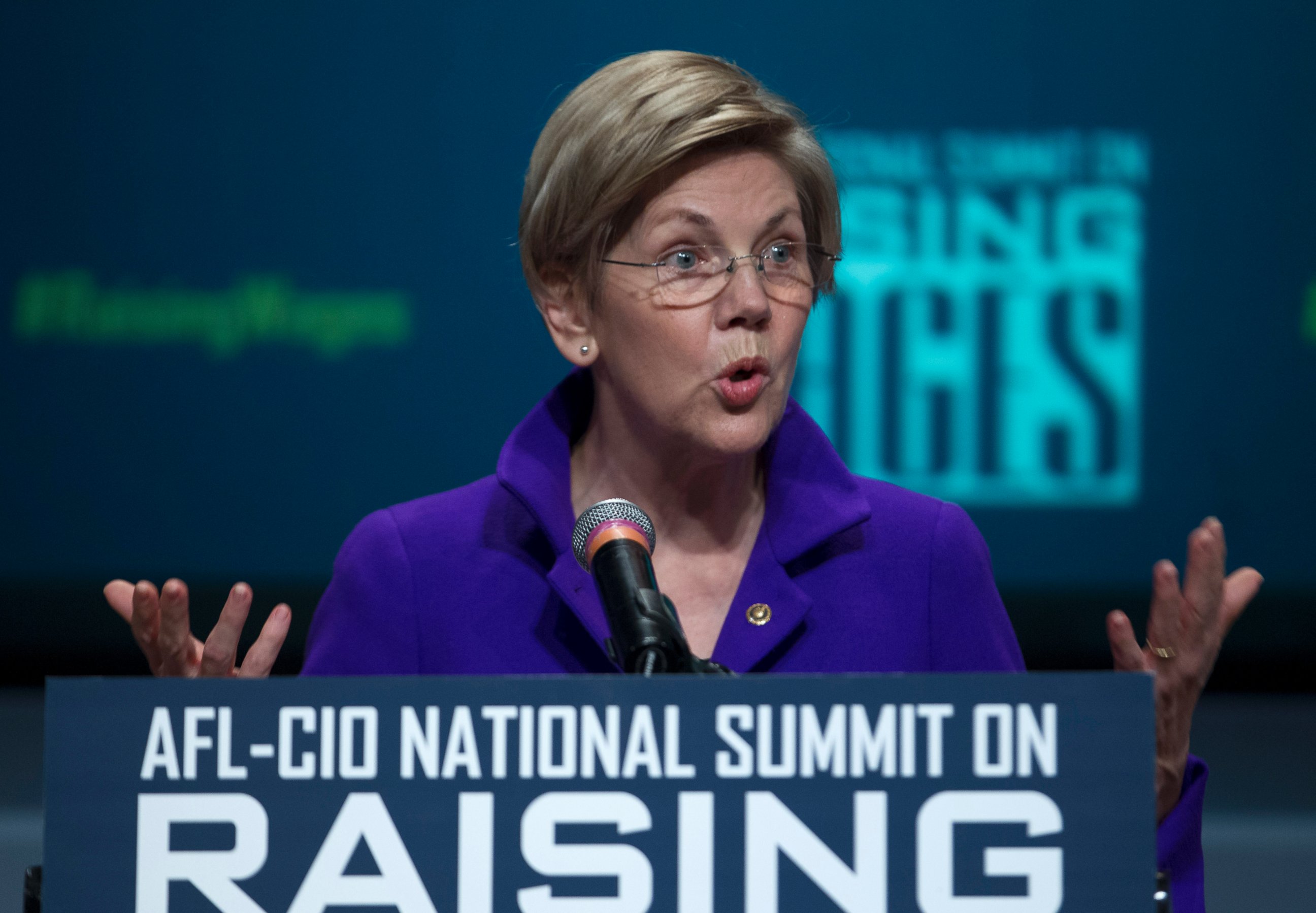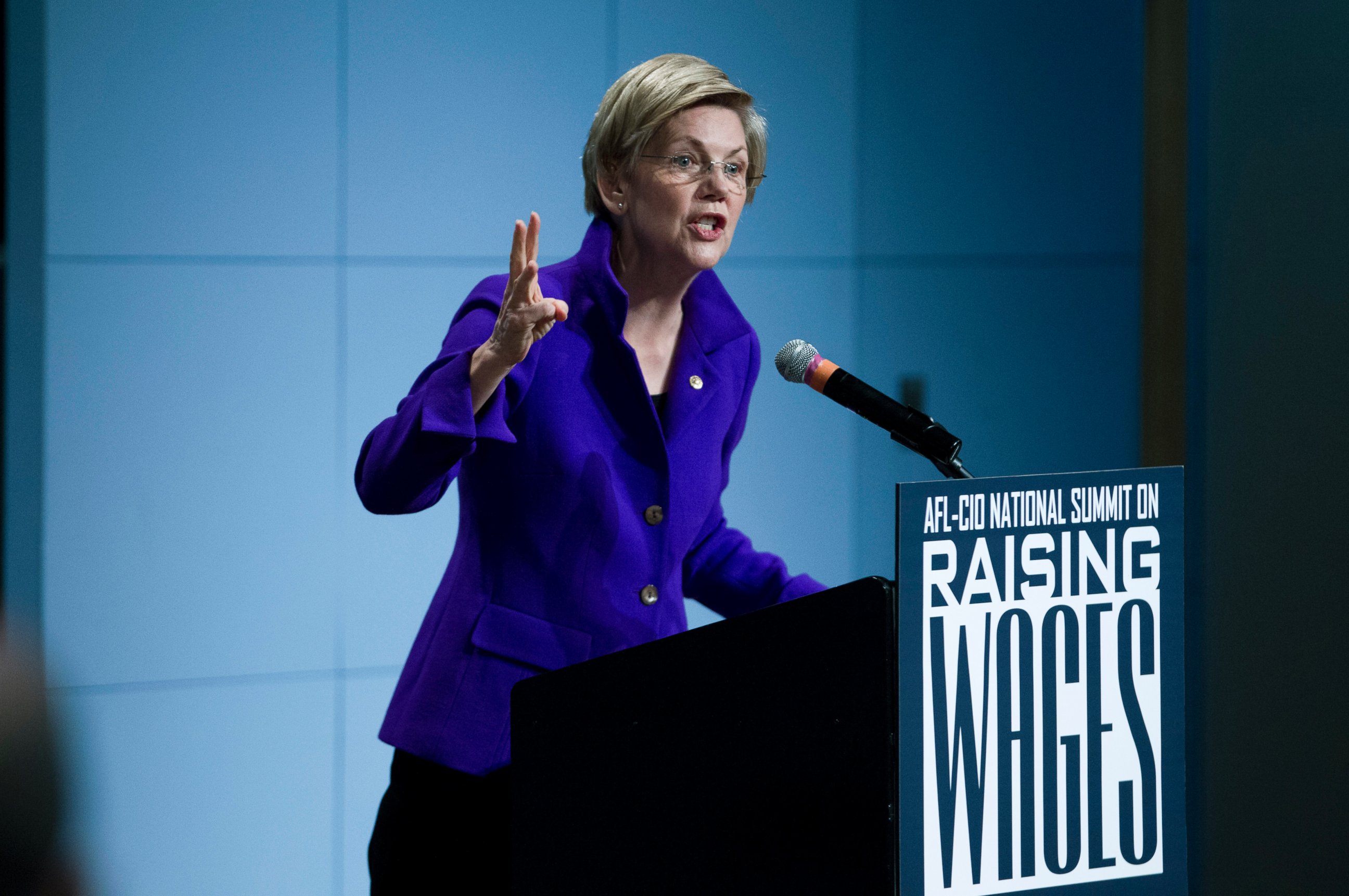How to Speak Warren: Translating The Senator Progressives Want For President
What Sen. Warren said vs. what she actually meant.

— -- On the second day of the new congressional session, and with President Obama on the road to promote the growing economy, Sen. Elizabeth Warren went to an AFL-CIO national gathering in Washington, D.C., on Wednesday to remind the nation’s progressives that she’s not satisfied.
As is typical, Warren, D-Mass., dropped no hints about her own ambitions, in 2016 or beyond. But decoding some of her best-received lines offer hints as to why she’s a force in national politics – a threat to Republicans, but also to some of the most prominent faces and voices inside her own Democratic Party.
WHAT SHE SAID: "Job growth is a really big deal and we celebrate it. Good for you, Mr. President."
WHAT SHE MEANT: It’s OK for Democrats to be happy about economic gains. It's not OK for them to be satisfied by them. Her tone in this line isn't quite as patronizing as the words might read. She followed them up by leading the crowd into a round of polite applause, but quickly went into the ways that bank bailouts, trade pacts and tax deals have contributed to middle-class stagnation.

WHAT SHE SAID: “Pretty much the whole Republican Party – and if we’re going to be honest, too many Democrats – have talked about the evils of big government and called for deregulation. And it all sounded good.”
WHAT SHE MEANT: I am not named "Clinton." Bill Clinton famously used a State of the Union address, in 1996, to declare that the “era of big government is over,” and the booming 1990s are often cited as laying the groundwork for the excesses that led to the financial crisis of the late 2000s. This is the closest Warren comes to a specific indictment of anything Clinton, including Hillary Clinton, whom Warren has often called “terrific” and has urged to run for president.
WHAT SHE SAID: “All of the new money earned in this economy over the past generation, all of that growth in GDP, went to the top. All of it.”

WHAT SHE MEANT: Income inequality isn't the fault only of Republican presidents – and it didn't stop under Democratic ones. By using 1980 as a turning point in her arguments about the disappearing middle class, Warren indicts Reagan-era “trickle-down” economics. But she makes clear that the presidencies of Bush, Clinton, Bush, and Obama didn't change those trends.
WHAT SHE SAID: “Many feel like the game is rigged against them. And they are right – the game is rigged against them.”
WHAT SHE MEANT: I’m with you. This has been the heart of Warren’s message throughout her brief career in public life. The power of the argument is that the institutions we trust to protect and support us are in fact weakening our economy and its middle-class households. That’s the economic populism that made a liberal senator from Massachusetts a big campaign draw in Kentucky and West Virginia last fall.
WHAT SHE SAID: “I graduated from a commuter college that cost $50 a semester, and I ended up in the United States Senate.”
WHAT SHE MEANT: I’m one of you. Warren’s biography -- from her mother’s minimum-wage job through her own struggles as a single mom -- informs her political identity to an uncommon degree. She speaks to crowds not as a Harvard professor but as someone who knows the struggles of Americans – Americans who don’t know from corporate jets and six-figure speaking gigs.

WHAT SHE SAID: “We have seen David beat Goliath.”
WHAT SHE MEANT: I will need you to be with me. I'm just not saying where or when quite yet. For now, Warren's fights are inside the Senate. It's there that she’s celebrating – in her words – the times the "lobbyists lose.” But her calls to “un-rig the system” seem broader than that, which is why her speeches connect in crowds like the one gathered by the AFL-CIO. Much of her intrigue is the possibility of much bigger political victories.




